News |
|
Today the European Association of Innovation Consultants (EAIC) releases a position paper analysing the EIC Accelerator (EICA) programme's performance and providing crucial recommendations for future work programmes. This document evaluates the November 2023 results against cumulative data, highlighting significant trends and making recommendations to enhance the EIC Accelerator's impact on the European deep-tech ecosystem. Key Findings and Recommendations 1. Declining success rates: The success rate for EICA interviews dropped to 17% in November 2023, resulting in an overall success rate of 4% for full applications. This decline is partly attributed to a preference for large investment components, which has been a consistent trend throughout 2023. 2. Funding distribution: In the last cut-off of 2023, €285 million was awarded to 47 candidates, with a substantial 86.8% allocated to blended financing candidates. This mirrors the annual trend where blended and equity-only financing dominated 84% of the funding. 3. Budget constraints: Severe budget cuts from 2023 onwards necessitate a clearer focus on the types of companies supported by the EIC Accelerator. The position paper suggests that current funding strategies are counterproductive given these constraints. 4. Recommendations: - Refocus on Grant-Only Cases: Prioritize a significant portion of the budget for grant-only projects to foster a transformation in the evaluation mindset and reduce perceived biases towards blended finance. - Limit Equity Requests: For blended finance applications, cap the maximum equity request at €5 million and introduce key milestones to ensure accountability and effective use of funds. The EAIC recommendations aim to enhance the EIC Accelerator's efficiency and attractiveness, ensuring it better supports high-potential, less mature companies essential for Europe's innovation landscape.
Key findings from the report indicate a high level of satisfaction among project coordinators who have utilised professional project management services, acknowledging a significant reduction in their workload. The survey, which gathers 64 responses, reveals that coordinators could save 3-5 days a month, emphasizing the crucial role of professional project management in enhancing project implementation. Furthermore, the report highlights the greater need for professional project management support within the private sector compared to Research and Technology Organisations (RTOs) and other public sector entities. Internal communication, good management practices, and a focus on exploitability are also among the essential components for the successful implementation of EU-funded projects. The EAIC's report also offers valuable recommendations for the European Commission, such as further simplifying the financial and contractual rules and applying a standard reimbursement rate of 100% for management activities, among others. These insights aim to foster a more efficient and effective project management practices across European collaborative projects. This report is a testament to EAIC's commitment to supporting European innovation through better project management practices, providing valuable guidance for EU project consortia. For further details, please contact us at [email protected] The EIC Accelerator is the most impactful and coveted funding instrument that the EC has at its disposal to fund high-risk deep-tech innovation. The funding decisions made by the EIC in the coming years will durably shape the future of European deeptech, with €7 billion currently allocated to the EIC Accelerator to fuel the next European champions in strategic domains such as quantum, bioinformatics, high-performance computing, cybersecurity, cleantech, healthcare, etc.
As part of the revamp of the EU Multiannual Financial Framework (MFF) presented in June by the European Commission, the EIC is now in line for an extra €2.6 billion for the Accelerator programme to provide, via the EIC Fund, additional equity funding of €15-50 million to support scale-up of companies in three strategic areas: deeptech, cleantech and biotech. The EAIC commends the European Commission for this proposed reallocation of budget as access to sufficient capital post-initial funding will allow the selected scale-ups to continue their R&D efforts, scale their operations, and maintain a steady growth trajectory without resorting to non-European investors. However, early-stage startups are not targeted by this new EIC Fund compartment: they will have to rely on the normal EIC Accelerator budget, which will see a significant decrease in 2024, from €1.09 billion in 2023, to €563 million in 2024 available for new EIC Accelerator laureates. EAIC working group on Horizon Europe collaborative calls is celebrating its 1-year anniversary this month!
Today the European Association of Innovation Consultants (EAIC) releases its response to the European Commission Consultation on the Past, Present and Future Framework Programme for Research and Innovation.
EAIC sets out key challenges that applicants and beneficiaries frequently encounter when preparing a proposal and running a project under the current Framework Programme, Horizon Europe (2021-2027). These challenges relate to the following four themes:
“EAIC Members support thousands of beneficary organisations, many of whom are new comers to the Framework Programme”, says EAIC President, Pekka Koponen, “Today, we share this wealth of experience to improve Horizon Europe implementation and lay the ground for the preparation of its successor.” Main recommendations - EAIC calls on the European Commission to:
EAIC Mutual Learning Webinar: Freelancers, Lump sums & Carbon Neutrality in Horizon Europe Projects9/12/2022 On Friday 16 December, EAIC organises a webinar in the context of its work on Project Management. EAIC Members will share knowledge on HEU related matters such as freelancers in projects, lump sums projects, carbon neutral projects etc.
When? Friday 16 December 2022 (15.00 - 16.00 CET) By whom? This event is organised by EAIC Member Polite and Neovia. For whom? This workshop is reserved to EAIC members. Interested? Write to [email protected] The European Commission published the drafts of the majority of the work programmes under Horizon Europe for the 2023 – 2024. These drafts have not been adopted or endorsed by the European Commission, but they were published to provide potential participants with the currently expected main lines of this work programme.
According to the European Commission, actions included in these work programmes will help accelerate the clean energy transition in line with the REPowerEU Plan, improve food security, cybersecurity, help ensure open strategic autonomy and reduce dependencies on critical raw materials, and accelerate delivery of the Green Deal. For example, a package of actions across the ‘Climate, Energy and Mobility’, ‘Digital, Industry and Space’ and ‘Food, Bioeconomy, Natural Resources, Agriculture and Environment’ clusters in particular will aim to speed up the clean energy transition. In addition, this work programme includes targeted actions to support Ukraine such as reinforcing Ukrainian researchers’ access to European research infrastructures while the EU Mission for Climate-Neutral and Smart Cities will support a number of Ukrainian cities in integrating the principles of climate neutrality in their reconstruction. With the 2023 – 2024 Horizon Europe work programme, the EU will invest around €13.5 billion in research and innovation. The published drafts include the work programmes for:
Download the drafts here. Source: The European Commission How important is professional project management to your project?
You have until 30 November to make your voice heard here on the matter! EAIC has launched a survey to collect insights with regards to management of EU-funded projects, collaboration with professional project management organisations, and project implementation processes. The survey can be completed in 15 minutes, comprising multiple-choice questions and free text spaces to add comments and insights regarding any ongoing, recent or past R&I Framework Programme collaborative projects you have participated in (Horizon 2020 and/or Horizon Europe). With your feedback, you will help European innovation professionals be better prepared to support you in future EU projects and advocate for improved framework conditions for EC-funded research and innovation projects. The survey is freely accessible here. After over 15 months of experience with Horizon Europe for both individual and collaborative calls, EAIC, the European Association of Innovation Consultants can provide some constructive feed-back on the new Horizon Europe Programme and its application process which has slightly evolved since the previous Framework Programme H2020.
With a view to contributing to the European Commission’s current interim review of Horizon Europe programme, a synthesis of EAIC member recommendations is provided below. Oversubscription and excellence:
“Building a greener, safer and better Europe”, this is the motto of the €2 billion partnership between the Bio-based Industries Consortium (BIC) and the European Union: the Circular Bio-based Europe Joint Undertaking (CBE JU). CBE-JU funds projects advancing competitive circular bio-based industries in Europe.
CBE JU operates under the same rules of Horizon Europe - the 2021 – 2027 EU’s research and innovation programme. The partnership is building on the success of its predecessor, the Bio-based Industries Joint Undertaking (BBI JU), while addressing the current challenges facing the industry. CBE JU aims to scale up technologies leading to industrial deployment, thus attracting investment and creating jobs. Furthermore, different stakeholders including the primary sector, regional authorities, and investors to prevent market failures and unsustainable bio-based processes will be involved. What is CBE JU's mission? The European bio-based sector, including SMEs, regions and primary producers should become climate neutral, more circular and more sustainable while remaining competitive on the global market. A strong, resource efficient and competitive bio-based innovation ecosystem can decrease Europe’s dependency on and accelerate the substitution of non-renewable fossil raw materials and mineral resources. CBE-JU mission is to implement the Strategic Research and Innovation Agenda (SRIA), through yearly open calls for proposals to fund projects in research, demonstration, and industrial deployment. These are the main goals of the partnership:
How CBE JU will achieve its objectives?The CBE JU calls fund different types of actions: Research and Innovation Actions (RIAs): 'testing', 'demonstrating' and 'piloting' activities to establish new knowledge or to explore the feasibility of new/ improved technology, product, process, service, or solution. Basic and applied research, technology development and integration, testing, demonstration, and validation on a small-scale prototype, in a laboratory or simulated environment are included. It is expected that RIA delivers TRL3-5 at the end of the project. Innovation Actions (IAs): 'testing', 'demonstrating' and 'piloting' activities also aiming at scaling up activities from prototype, in a (near to) operational environment, industrial or otherwise, to large-scale product validation and market replication. At the end of the project TRL6-8 have to be delivered. Flagships: important and specific type of Innovation Action with the objective to support the first application/deployment in the EU market of an innovation already demonstrated but not yet applied/deployed in the EU market (first-of-its-kind innovation). Flagship projects need to deliver TRL 8 at the end of the projects. In each topic the end TRL is specified. Coordination and Support Actions (CSAs): addressing needs to i) structure stakeholder communities; ii) support dissemination and exploitation of research or innovation projects; iii) exploit synergies of scale among projects; iv) raise awareness in specific areas; v) support technological visions (e.g. road-mapping, user cases, etc.) and outreach (e.g. events, publications, etc.); vi) promote international cooperation with specific regions and/or technological areas for any of the above-mentioned activities; vii) undertake other activities similar in nature to those above (i.e., this is not an exhaustive list). Pre-commercial Procurement Action (PCPs) may also be considered if relevant to attain the objectives of the CBE JU in future CBE JU AWP. Additionally, financial support to third parties may be included in specific call topics and funded as part of the received grants from CBE JU via financial support. What are the calls for proposal of 2022?The CBE-JU Annual Work Programme 2022 will fund projects developing innovative and sustainable bio-based solutions, with a focus on the following strategic priorities: feedstock, processing, products, cross-cutting aspects of communication and environmental sustainability. CBE JU will welcome project proposals across 12 topics with a total indicative budget of €120 million: Innovation Actions
Innovation Actions - Flagships
Research and Innovation Actions
Coordination and Support Actions
Check out all the funding opportunities and get more information about the whole programme. Are you planning to apply to any of these calls? Our members are expert in accompanying consortia from small to very large size. They are acting in line with our code of conduct which guarantees qualitative and professional behavior at all times. Are you interested to get support from a consultant? Indicate here the type of service you are needing and we will get back to you very shortly! Article courtesy of EAIC member ENCO Engineering and Consulting The Marie Skłodowska-Curie Actions Postdoctoral Fellowship programme supports postdoctoral researchers to develop their research careers with a total budget of €257 million. It provides fellowships to the most promising researchers, who wish to carry out their research activities abroad, by either coming to Europe from any country in the world, moving within Europe or even moving to Third Countries not associated to Horizon Europe. The Marie Skłodowska-Curie Actions (MSCA) is the main European instrument supporting young women and men to make a career in research with the goal to retain excellent researchers within Europe and reintegrate those working elsewhere. Since their launch in 1996, they have become Europe’s reference programme for doctoral education and postdoctoral training. The MSCA PF programme that is part of the Excellent Science pillar of Horizon Europe aims to equip postdoctoral fellows with new transferable skills and international, interdisciplinary and inter-sectoral exposure via advanced training and mobility. The MSCA PF is based on the principle of physical mobility, meaning that researchers who receive funding have to move from one country to another. Researchers who wish to apply are also encouraged to move between sectors and disciplines. The main objectives of a Postdoctoral fellowship are to:
What’s new this year?
This year MSCA place a stronger emphasis on collaborations between academia and business. There’s also a renewed emphasis on effective supervision and career guidance to postdoctoral fellows according to the MSCA Guidelines on Supervision. Applicants are also encouraged to address the principles of the MSCA Green Charter, in line with the European Green Deal, and implement measures to promote sustainable research activities and minimise the environmental footprint of such activities. Another novelty in MSCA PF in Horizon Europe compared to Horizon 2020 is that areas of research covered by the Euratom Research and Training Programme, specifically nuclear research and innovation, are now included in the range of topics supported by the MSCA, including Chemistry, Social Sciences and Humanities, Economic Sciences, Information Science and Engineering, Environment and Geosciences, Life Sciences, Mathematics and Physics. When and how to apply? The 2022 call is now open for submissions through the Funding and Tenders Portal, with a deadline on 14 September 2022. Although, the project proposal should be written jointly by the postdoctoral candidate and the host organisation, only the Host Supervisor is allowed to submit the proposal. The EU average success rate for the 2021 call was 13-14%. Host organisations are encouraged to read the Marie Skłodowska-Curie Actions Guidelines for the Inclusion of Researchers at Risk comprising researchers experiencing threats to their life, liberty or research career, and those who are forced to flee or have been displaced. Following Russian’s invasion of Ukraine, the new MSCA4Ukraine scheme includes €25 million for actions supporting researchers previously active in Ukraine. Who can apply? You can apply for an MSCA Postdoctoral Fellowship if you:
There are two types of Postdoctoral Fellowships:
What does the postdoctoral fellowship cover?
Evaluation process Submitted proposals will be evaluated between October and December 2022 against three evaluation criteria, including Excellence (50% of the evaluation score), Impact (30%) and Implementation (20%). Applications with a total score equal to or higher than 85% receive a Seal of Excellence, which adds weight to the researchers’ applications when they seek to apply to other EU Funding Calls. The evaluation results will be published by February/March 2023 and projects are expected to start around May-September 2023. Are you planning to apply to any of these calls? Our members are expert in accompanying consortia from small to very large size. They are acting in line with our code of conduct which guarantees qualitative and professional behavior at all times. Are you interested to get support from a consultant? Indicate here the type of service you are needing and we will get back to you very shortly! Article courtesy of EAIC Member GrantXpert Consulting Ltd. On Tuesday 10 May, EAIC submitted its contribution to the European Innovation Agenda call for evidence launched earlier in April by the European Commission.
The EC was seekign feed-back on Five essential action points it identified to improve Europe’s innovation performance:
The EAIC welcomes this initiative, we stress in particular the following:
The European Commission, in its evolution to an impact-driven framework programme, launched on Wednesday, 29 September 2021, the €1.9 billion plan for the first two-year phase of five Missions, a new-style approach to Research and Innovation in Horizon Europe (HE). Article courtesy of EAIC Member, benkeiNext Generation EU & Horizon Europe: working hand in hand to facilitate the EU’s fast recovery6/10/2021  To amortise the pandemic aftermath in 2020, the European Union provided a stimulus package worth EUR 2 trillion. The package consists of the EU’s long-term budget for 2021 - 2027 of EUR 1.2 trillion, enhanced by NextGenerationEU at a value of EUR 807 billion. This budget is split into two types of fundings: grants and loans, some EUR 338 billion will be provided in the form of grants, while EUR 386 billion will be used to provide loans from the EU to individual Member States with favourable conditions. NextGenerationEU is a European instrument specifically designed to help repair the immediate economic and social damage caused by the coronavirus. Its long-term goal is to make the EU greener, more digital, more resilient and better prepared for the forthcoming challenges. The cornerstone of Next Generation EU is the Recovery and Resilience Facility – an instrument that provides grants and loans to support necessary reforms and investments within EU Member States. The funds from the instrument will be distributed according to national recovery and resilience plans set up by individual member states, in cooperation with the European Commission and in line with an agreed allocation key. The European Association of Innovation Consultants (EAIC) has released its first collective report “A Guide to Next Generation EU for industry to better understand and seize its opportunities.” The guide currently covers 21 countries, however, EAIC intends to regularly update this guide and incorporate new sections to facilitate the identification of opportunities for industry. The purpose of the guide is to help EU industry, present in multiple EU countries, identify the priorities to facilitate the recovery of each member state. Although national plans are usually available in each local language, the guide summarises the plans in English and allows for more transparency. One of the traditional programmes, funded under the multiannual financial framework for the next 7 years, is Horizon Europe 2021-2027. It is the EU’s key funding programme for research and innovation with a budget of over EUR 95 billion. Its main goal is to tackle climate change and accomplish the UN’s Sustainable Development Goals, while boosting the EU’s competitiveness and growth. The main research and innovation missions are Adaptation to climate change mission;, Cancer mission, Climate-neutral and Smart Cities mission, Soil deal for Europe mission and Restore our oceans and waters mission. Horizon Europe views digital transformation and green transition as priority objectives, which can be identified as the most important cross-cutting priority areas, along with NextGenerationEU. While Horizon Europe (2021-2027) is is framed within the Multiannual Financial Framework (MFF), NextGenerationEU (2021-2023) is a temporary recovery instrument put in place to boost, through investment and reform financing, the recovery of Member States' economies in the wake of the pandemic. NextGenerationEU has a temporary investment role and it covers a wider field of priorities such as the green transition, digital transformation, smart, sustainable, and inclusive growth, social and territorial cohesion, health and economic, social and institutional resilience and policies for the next generation, children and the youth, such as education. Its focus is placed on seven key features: Power up, Renovate, Recharge and Refuel, Connect, Modernise, Scale-up, Reskill and upskill. Furthermore, NextGenerationEU will strengthen several existing EU programmes and policies:
Financing To avoid immediate pressure on member states’ national finances, the EU will borrow from the markets to finance NextGenerationEU, with the repayment period taking place until 2058. Approximately 50% of NextGenerationEU’s budget will be spent on research and innovation via Horizon Europe, the Just Transition Fund, the Digital Europe programme, the Recovery and Resilience Facility, RescEU, and EU4Health. Below, a detailed breakdown of the NextGenerationEU 2021-2023 and the regular Multiannual Financial Framework 2021-2027 is shown: Around 30% of the long-term budget and NextGenerationEU will be spent on fighting climate change. These funds are part of a major investment plan that the EU will put in place for a sustainable green economy. It will combine EU and national public funds, but also public and private investments to support the EU on its path to climate neutrality by 2050.
The remaining 20% of the Recovery and Resilience Facility funds will be invested in the digitalisation of the EU. These funds support investments in supercomputing, artificial intelligence, cybersecurity, advanced digital skills and the wider use of digital technologies across the socioeconomic spectrum. Horizon Europe (HE) has a budget of EUR 95.5 billion from 2021 to 2027. This amount includes EUR 5.4 billion from the NextGenerationEU instrument. HE’s budget is divided among four pillars and 15 components, creating a programme that will support all the areas of Research and Innovation: excellent science (ERC, MSCA…); global challenges & industrial competitiveness (health, creative, digital, space,…); innovative Europe (EIC, EIT,…) and widening participation & strengthening the European Research Area. In conclusion, the two funding programmes are closely interlinked. First, they have similar objectives and challenges that are urgent in the wake of the SARS-CoV-2 virus situation. Second, they are financially related, since NextGenerationEU’s extraordinary funds will reinforce the regular Horizon Europe funds for the period 2021-2023. Women make up about half of the population and voters in the EU, but they are still under-represented in high-level positions, whether in elections, public administration, corporate boards or academia. The European Commission has committed itself to promote gender equality in research and innovation (R&I). Horizon 2020 was the first framework programme to make gender a cross-cutting issue, and one of the key objectives was to integrate the gender dimension into R&I content. With Horizon Europe, the Commission has promised to reaffirm its commitment to gender equality in R&I.
Horizon Europe sets gender equality as a crosscutting principle and aims to eliminate gender inequality and intersecting socio-economic inequalities throughout R&I systems, including by addressing unconscious bias and systemic structural barriers. By considering sex and gender dimension in the whole research & innovation process we can prevent for example gender or racially biased AI products due to a lack of diversity in the AI training data. Anne Pépin, Senior Policy Officer from European Commission presented the key aspects and novelties regarding gender equality in Horizon Europe in a webinar on 21 April 2021. There are three levels with three different aspects that should be taken into account when preparing a proposal for Horizon Europe.
When sex, gender and intersecting factors are all considered in the design and delivery of R&I, it can leads to added value of research in terms of excellence, societal relevance, creativity and business opportunities. It creates in-depth understanding of all people’s needs, behaviours, and attitudes, and with this understanding it is easier to make goods and services that are better suited to the needs of all people. “In business, politics and society as a whole, we can only reach our full potential if we use all of our talent and diversity. Gender equality brings more jobs and higher productivity – a potential which needs to be realised as we embrace the green and digital transitions and face up to our demographic challenges.” – EU Gender Equality Strategy 2020-2025 Article courtesy of EAIC member, Spinverse. Horizon Europe, the long-awaited successor to Horizon 2020, and the world’s largest transnational research and innovation programme, is finally ready to take off!
The programme is designed to support European competitiveness by creating new growth and jobs based on scientific knowledge and technological development, all the while tackling societal challenges and helping to sustain European socio-economic models and values. So, how does it work concretely? The programme has been built on three main Pillars, each of them having a different objective:
Beyond accumulating new knowledge, developing new technologies or increasing European competitiveness, Horizon Europe aims to achieve tangible benefits for European citizens related to the main challenges addressed by the programme (Digital transition, Ecological transition (Green Deal), Health resilience, Economic resilience and recovery). Horizon Europe is evolving into an impact-driven framework programme, based on a new holistic monitoring approach. This new Horizon Europe programme will be monitored as a virtuous circle to design (Intervention logic at the level of clusters, destinations, missions), implement (at the level of strategic Plan, Work Programme Proposal template, Project reporting) and assess the programme’s impacts (through Monitoring Key Impact Pathways, Management & Implementation Data, Interim and ex-post evaluation). For maximising impact at the level of the programme, new features have been introduced, among them, enlarged international cooperation, an in-depth open science policy, missions orientation and citizens’ involvement, to name a few. The Horizon Europe Legislation has defined 3 types of impacts, tracked with key Impact Pathways (KIP). The impact logic of the programme is framed by Key Impact Pathways (KIP) detailed in the figure below and defined by Horizon Europe legislation. The Research and Innovation days will open tomorrow, marking the long-awaited launch of the first Horizon Europe 2021 calls. Thousands of companies, research centres and SMEs with existing experience in collaborative European Research and Innovation (R&I) projects, as well as other applicants, new to this programme, are in the starting blocks. European Innovation Consultants as well.
This week will see the opening of the first calls under Pillar II of the Horizon Europe Programme. Horizon Europe’s total budget for the next 7 years amounts to the record amount of €95.5 bn, of which half will address global challenges and European industrial competitiveness. Over 700 topics (collaborative projects to be funded by the European Commission) will be published in the next 2 years, funding thousands of projects involving various partners (industrial partners, research centres, SMEs, or non--profit organisations, etc.) for several years. Each project will require excellent coordination and management skills to ensure public funds provided by the Commission are spent efficiently to develop novel solutions. From a maturity point of view, projects will span from basic research to applied innovation, ready to be commercialised when the project is finalised. Ambitious exploitation strategies (i.e. what will happen with the research and innovation beyond the project lifetime) will have to be included in funding applications to convince evaluators. In 2019, Innovation Consultants across Europe decided to strengthen their collaboration through EAIC, the European Association of Innovation Consultants. The purpose of the association is to allow for better recognition of their work and contribution to the support of many actors, such as industry and research organisations, who are willing to be part of EU projects to develop breakthrough innovations but have limited expertise and/or time to access these funding instruments. Consultants advise them on how to develop their innovation process as well as on how to access public funding needed to bring their innovation to market. With the new Horizon Europe collaborative calls now opening, Innovation Consultants are ready to support projects based on their previous experience and track records with the previous framework programme. EAIC now includes more than 40 members across the EU with a vast experience in R&I programmes but also in alternative funding opportunities for the private and public sectors in Europe. Under Horizon 2020, the predecessor of Horizon Europe for (2014-2020), the average success rate of 11% has decreased in the last years of the programme as budgets ran out and consortia competed for the remainder of the funding. Many companies and research centres have used the support of innovation consultants, to increase their chances of success , to drive the proposal writing process under time pressure, to find the right partner and support them in the professional management of projects when approved. The members of EAIC have decided to sign a code of conduct which is a prerequisite to be part of the association, which ensures that they respect deontological principles, such as impartiality, e.g. they cannot write proposals and be part of the evaluation committee at the same time. On 21st June, EAIC elected a new board of members composed of 12 company representatives; you can find the composition of the new board here: https://www.eaic.eu/about-eaic.html Consult the full list of EAIC members here: https://www.eaic.eu/members.html View the Horizon Europe calls that have already been announced through the official Work Programmes of the EC here. About EAIC The European Association of Innovation Consultants (EAIC) gathers active Innovation Consultants in the field of European research and innovation projects. The group aims to facilitate the exchange and promotion of best practices and success stories, as well as to uphold professional skills and expertise in European RDI projects. Today, the group gathers 46 members, active in more than 24 countries around Europe. www.eaic.eu The Horizon 2020 oversubscription issue and the low overall success rate is having an important impact in terms of costs for the brave players that accept the challenge of preparing a collaborative proposal. Unfortunately, Horizon Europe is not proposing adequate solutions to this issue. The European Association of Innovation Consultants (EAIC) is preparing an assessment about the impact of the low success rates of H2020 for potential beneficiaries. In order to have an estimation of the impact of the oversubscription issue in terms of time - effort, the EAIC invites you to answer the survey in the link below. It will only take a few minutes and your feedback will be very valuable for our study.
The European Union’s (EU) Green Deal is the EU’s main new growth strategy to transition the EU economy toward a sustainable economic model. The proposed financing of the EU Green Deal is set out in the EU Green Deal Investment Plan.
Several funding mechanisms were created to facilitate the EU Green Deal, totalling over €1 trillion. Over 50% of the budget, €528 billion, will come directly from the EU budget and the EU Emissions Trading System. The rest will be sourced through the InvestEU programme, which combines €279 billion from public and private sectors to 2030 and €114 billion from national co-financing. It will provide an EU budget guarantee to allow the EIB Group and others to invest in higher-risk projects, enabling private investment. During the Horizon Europe Virtual Summit, 31 May - 4 June, EAIC Members, Louis Papaemmanuel (My EU Consulting), Silver Toomla (Invent Baltics), Nadège Grabowski, Xavier Aubry (Zaz Ventures) and Lucie Guilloteau (Euronovia) shared their expertise through speeches on creating winning EIC Accelerator, Pathfinder and Transition applications, as well as tips and best practices for MSCA Postdoctoral Fellowships.
More about the event The Horizon Europe Virtual Summit is an online event featuring world-class experts in European Research & Innovation. The free event aims to increase the success rate of the Horizon Europe proposals and is organised over 5 days, with 30+ Masterclasses, Interviews and Training Sessions from top Horizon Europe experts. Read more about the event here. The European Innovation Council (EIC) is a key novelty of Horizon Europe and is a European innovation initiative with a budget of approximately €10 billion for the period 2021-2027. The EIC is the result of lessons and achievements from its pilot phase during the period 2018-2021. It combines research on emerging technologies with an accelerator programme and a dedicated equity fund, the European Innovation Council Fund, to scale up innovative start-ups and small and medium-sized businesses (SMEs). Around €3 billion of the EIC’s budget will go towards the EIC Fund. In the infographic below, prepared by EAIC member, Lira, we detail the EIC's funding opportunities (Accelerator, Transition and Pathfinder), taking into account the different deadlines and challenge topics.
We are pleased to announce that the European Association of Innovation Consultants (EAIC) is a partner of the Science|Business public annual conference “R&I in recovery: what can Horizon Europe deliver?” to be held on February 22-23, 2021.
“It is our pleasure to support Science|Business in bringing industry together with policy-makers and the research community," said Pekka Koponen, President of the EAIC, "More innovation is needed for European recovery, and members of the European Association of Innovation Consultants are happy to join to increase industrial innovation, applied research, international co-operation and professional project management.” This virtual conference will address some of the following questions, among many others:
During this event, Margrethe Vestager (Executive Vice President of the EC), Mariya Gabriel (Commissioner for Innovation, Research, Youth, Education and Culture) and Martin Kern (EIT Director) will deliver speeches, along with many other key R&I figures. Other partners of the event include the EIT, Sanofi, the ATTRACT project, the TRESCA project and the EIB. About Science|Business The Science|Business Network is one of universities, companies, and research and policy organisations, and acts as a forum for driving innovation forward. Reaching Europe's most influential innovators and policymakers, Science|Business' expertise and knowledge of European policy making contributes to making a difference. Read more about the conference here. Read more about Science|Business here. For this third edition of the European Research and Innovation Days, the European Commission’s Directorate-General for Research and Innovation has announced that the event will be held virtually on 23 and 24 June 2021.
As seen throughout the past year, cooperation in research and innovation is essential for Europe’s recovery; the annual flagship event, which coincides with Horizon Europe’s launch, will have a special focus on new initiatives to strengthen the European Research Area. With the aim to foster collaboration and encourage the debate among policymakers, researchers, entrepreneurs and the general public, the European R&I Days also intend to pave the way to a greener and more digital future. Last year’s edition gathered over 35 000 registered participants from 188 countries. We expect this year's edition to be instrumental in facing the challenges of tomorrow. Read more here. Author: Marie Latour, Head of Office, Zabala Brussels
This week, the EU research ministers have agreed on the final details of Horizon Europe: To begin with, they agree on a linear cut across its programmes to reflect the outcome of the July budget summit (from €94.4 billion to €80.9 billion in 2018 prices) this represents a decrease of more than 14% from the European Commission's (EC) original proposal. In current prices, this is equivalent to a budget of €90.9 billion, of which €5.4 billion comes from the Next Generation EU budget, as part of the recovery plan. |
Categories
All
Archives
July 2024
|
||||||||


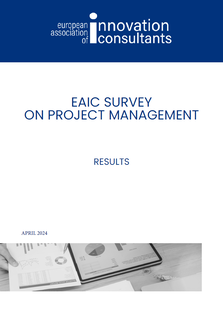
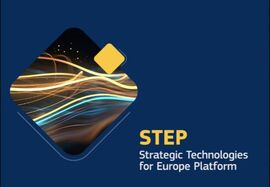

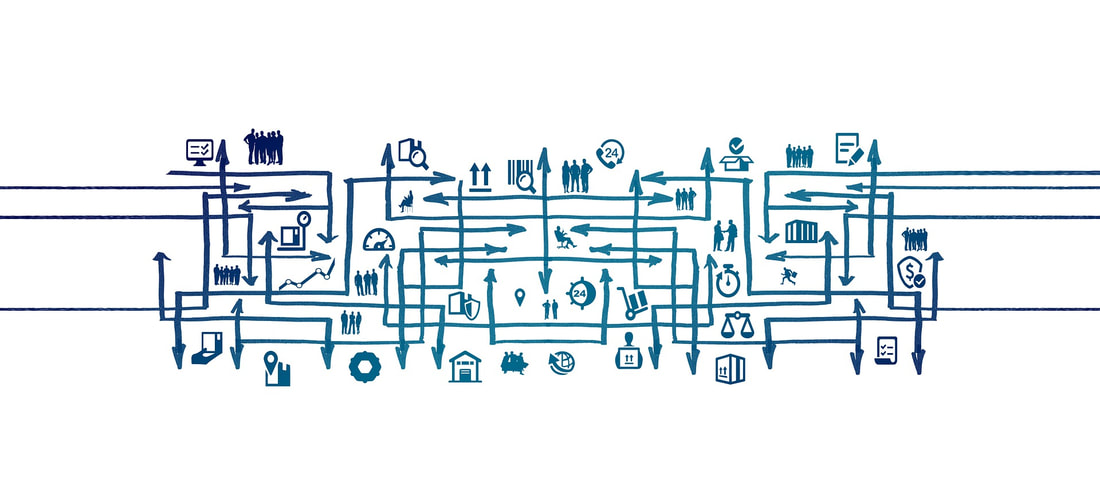
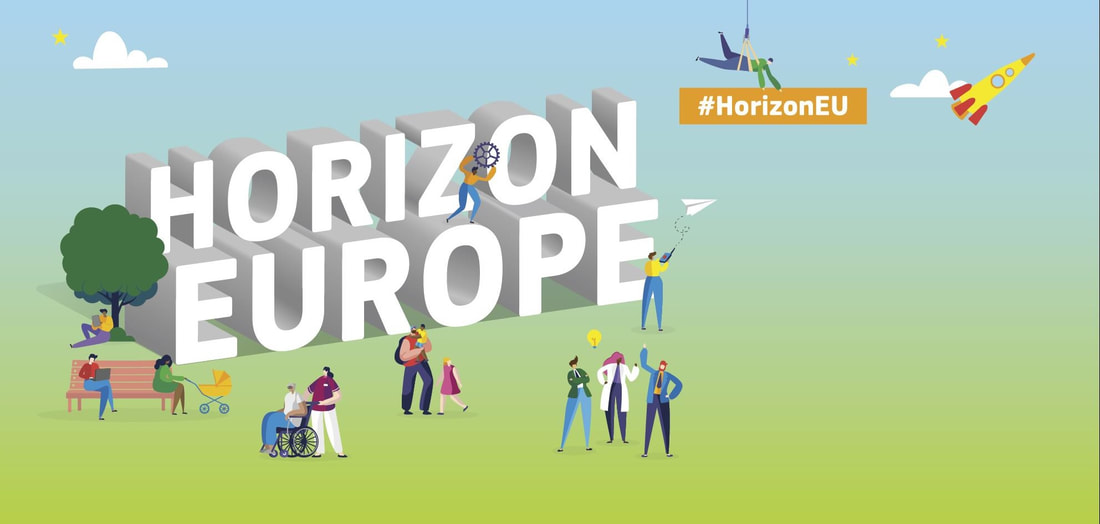

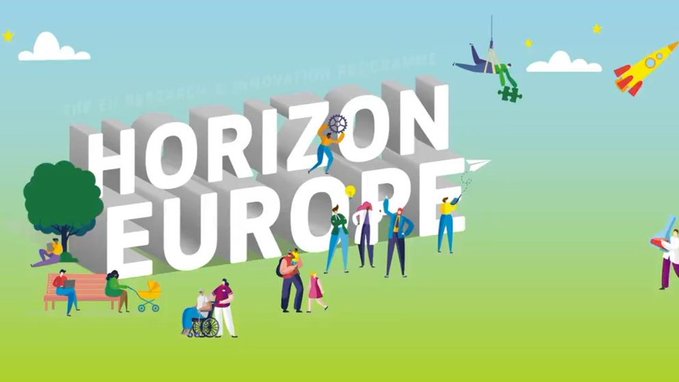

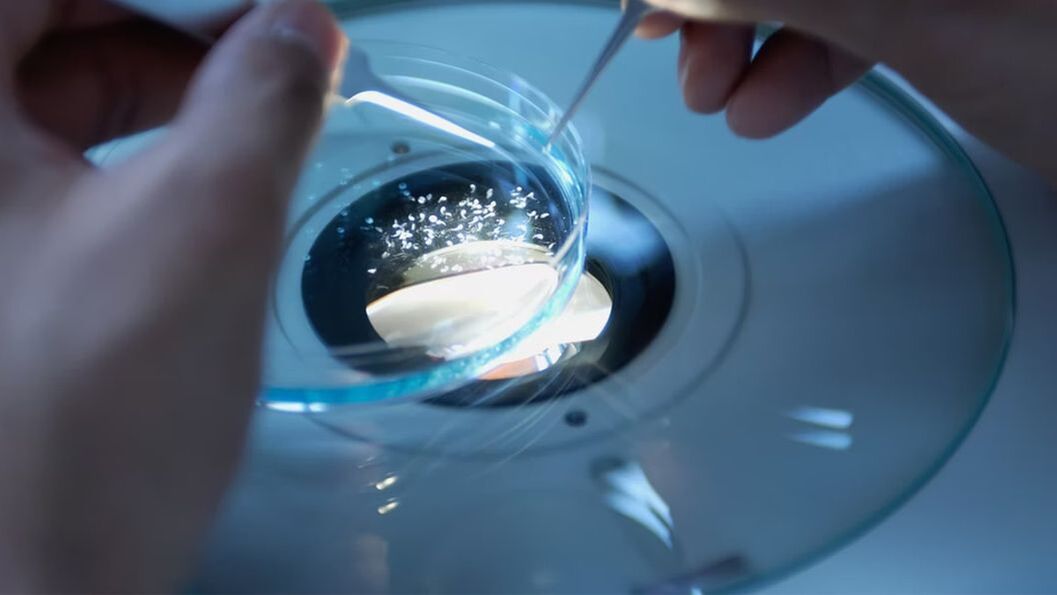
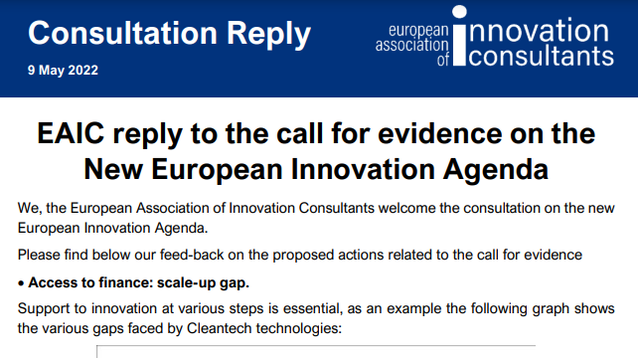
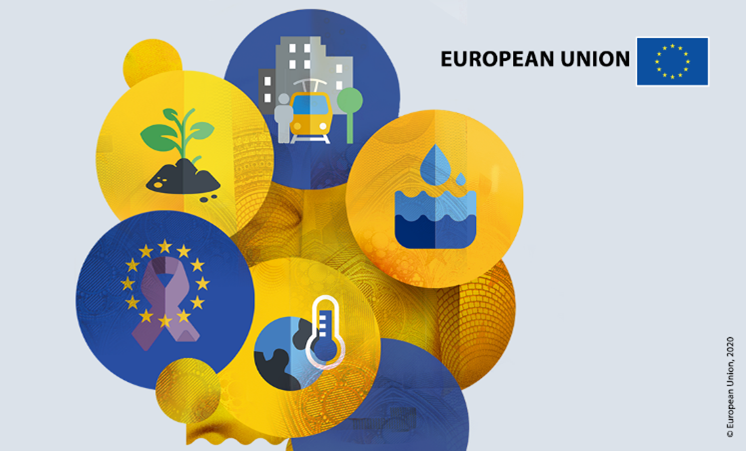
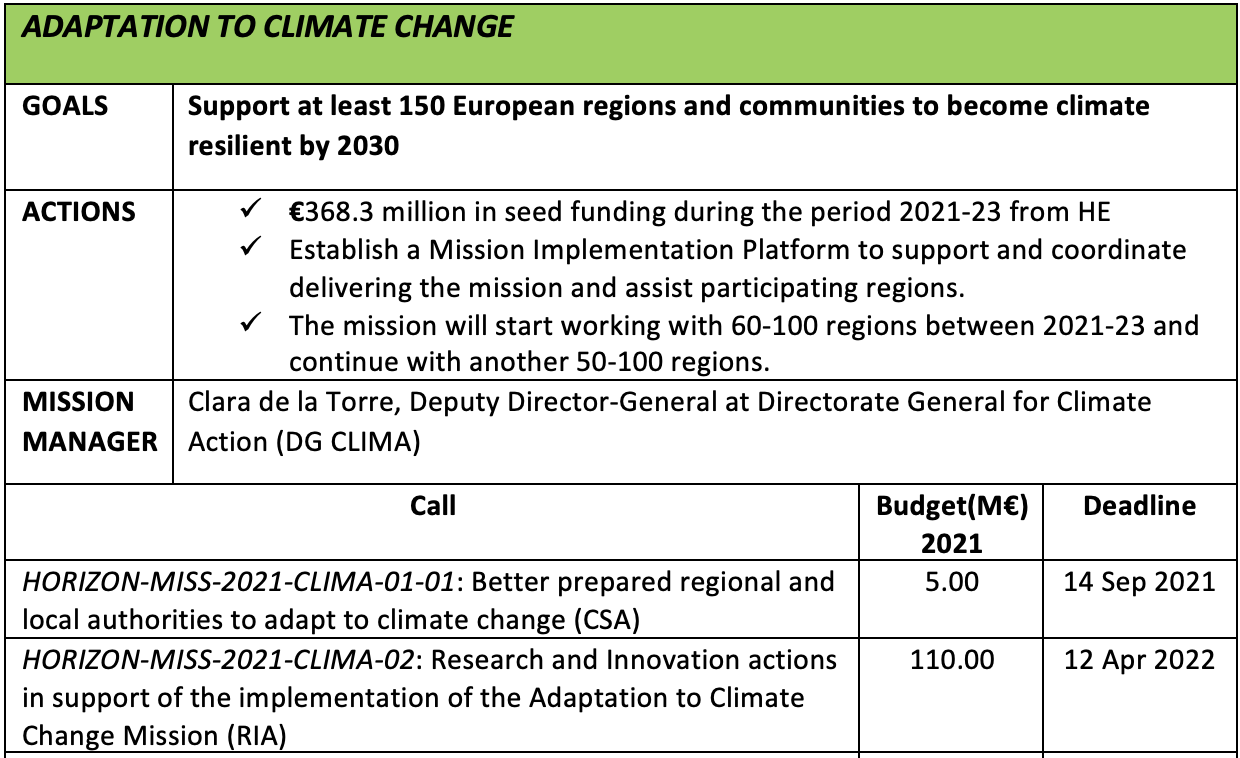
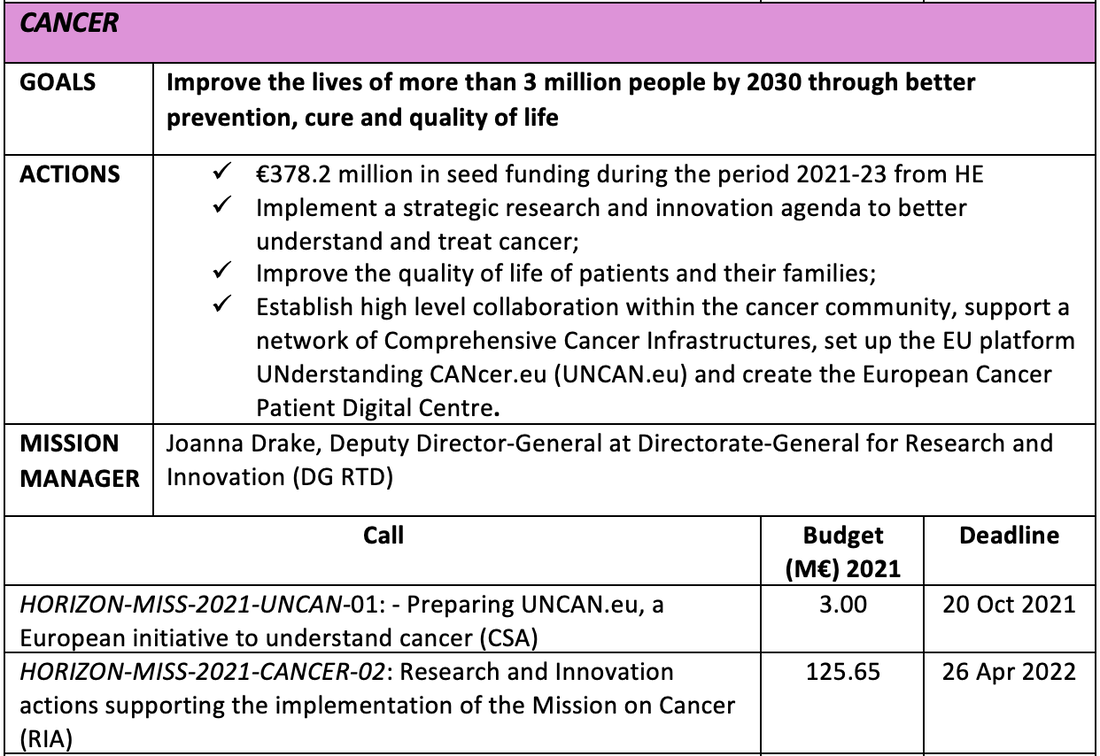
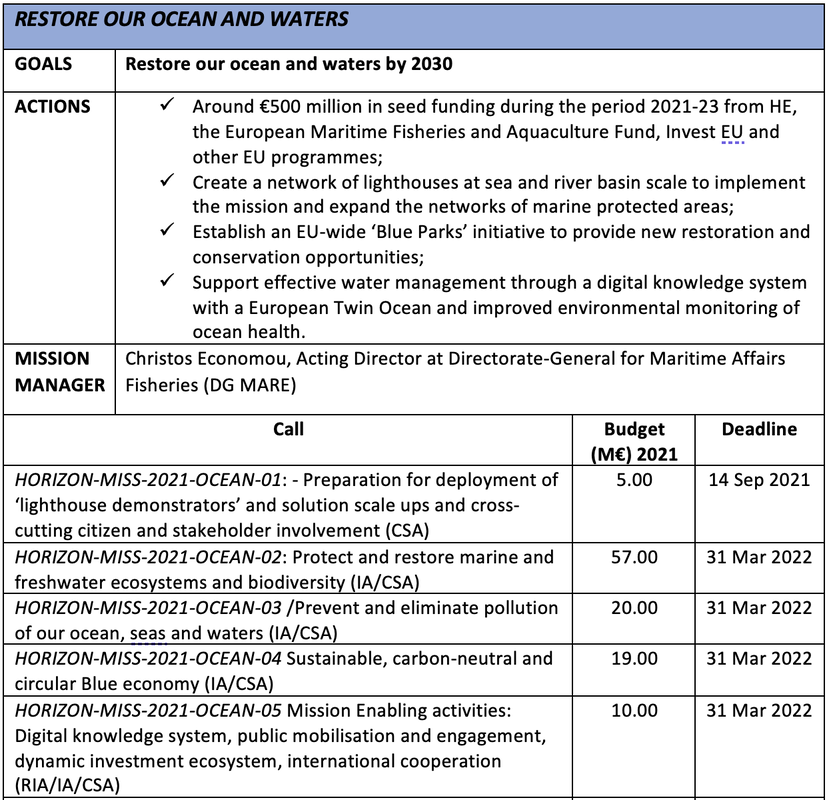
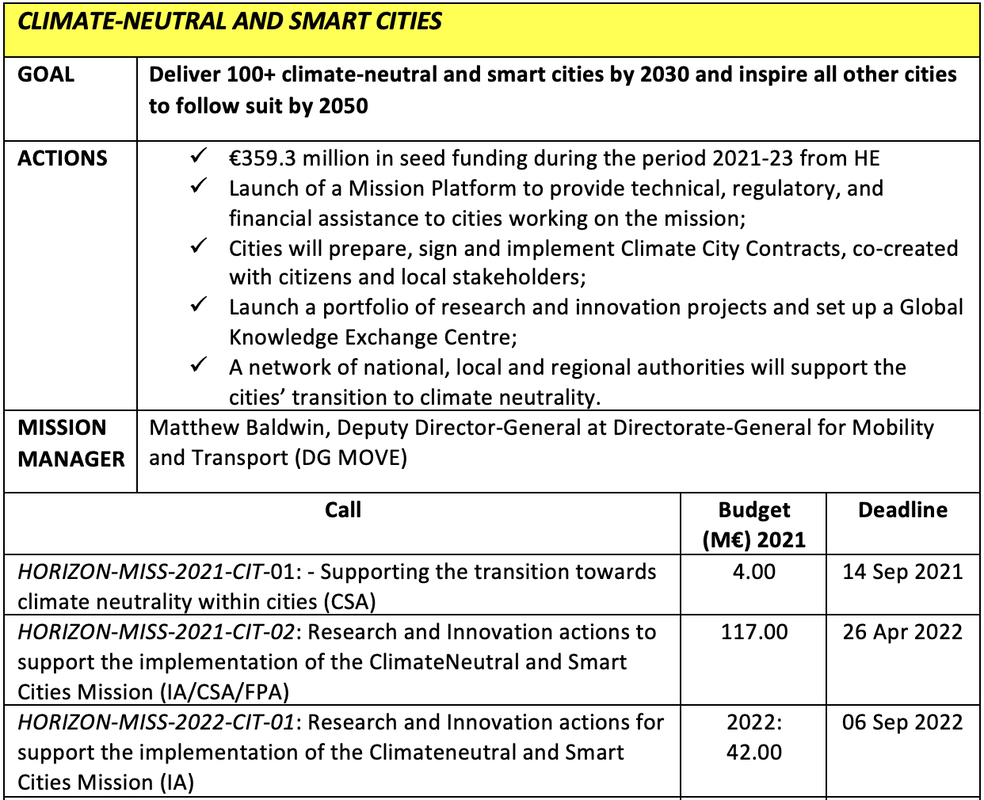
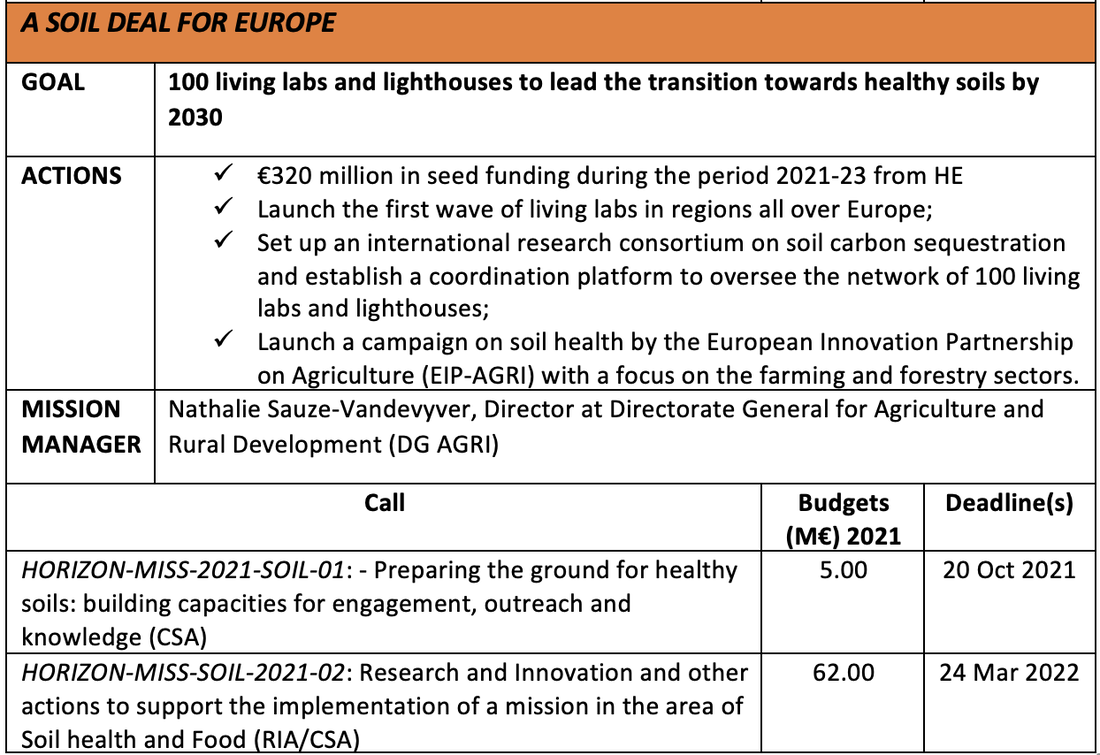
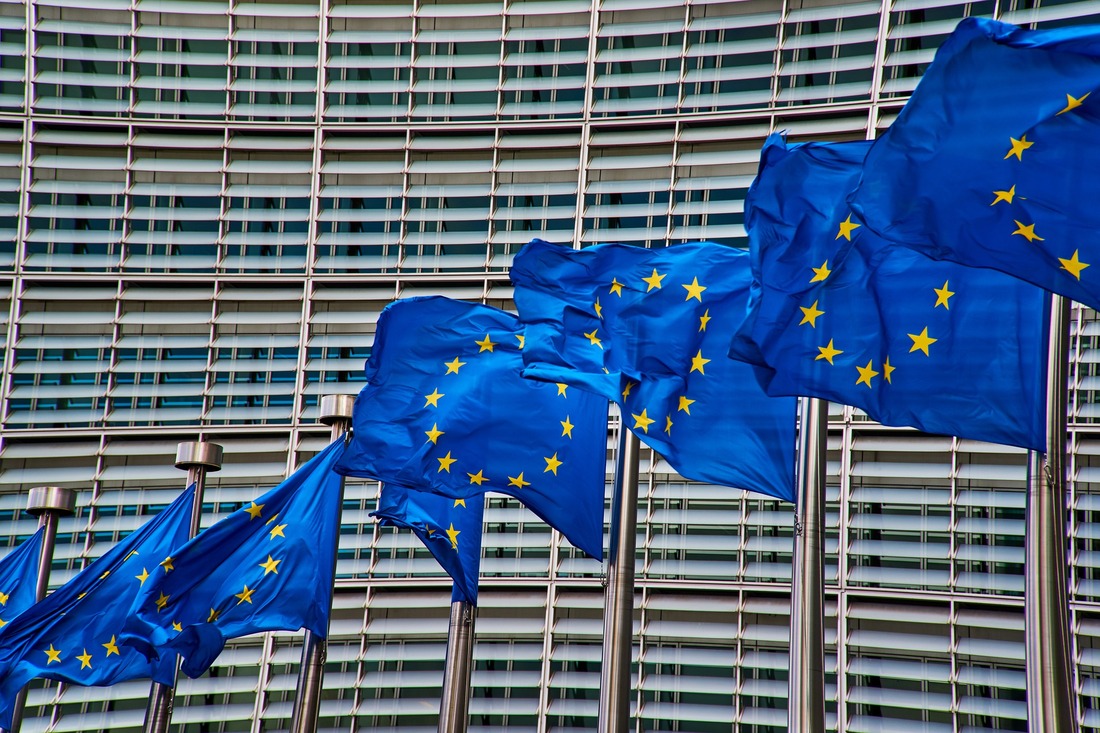
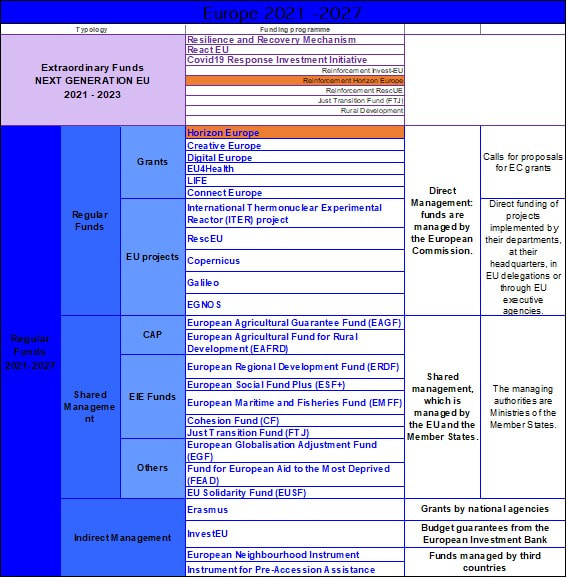


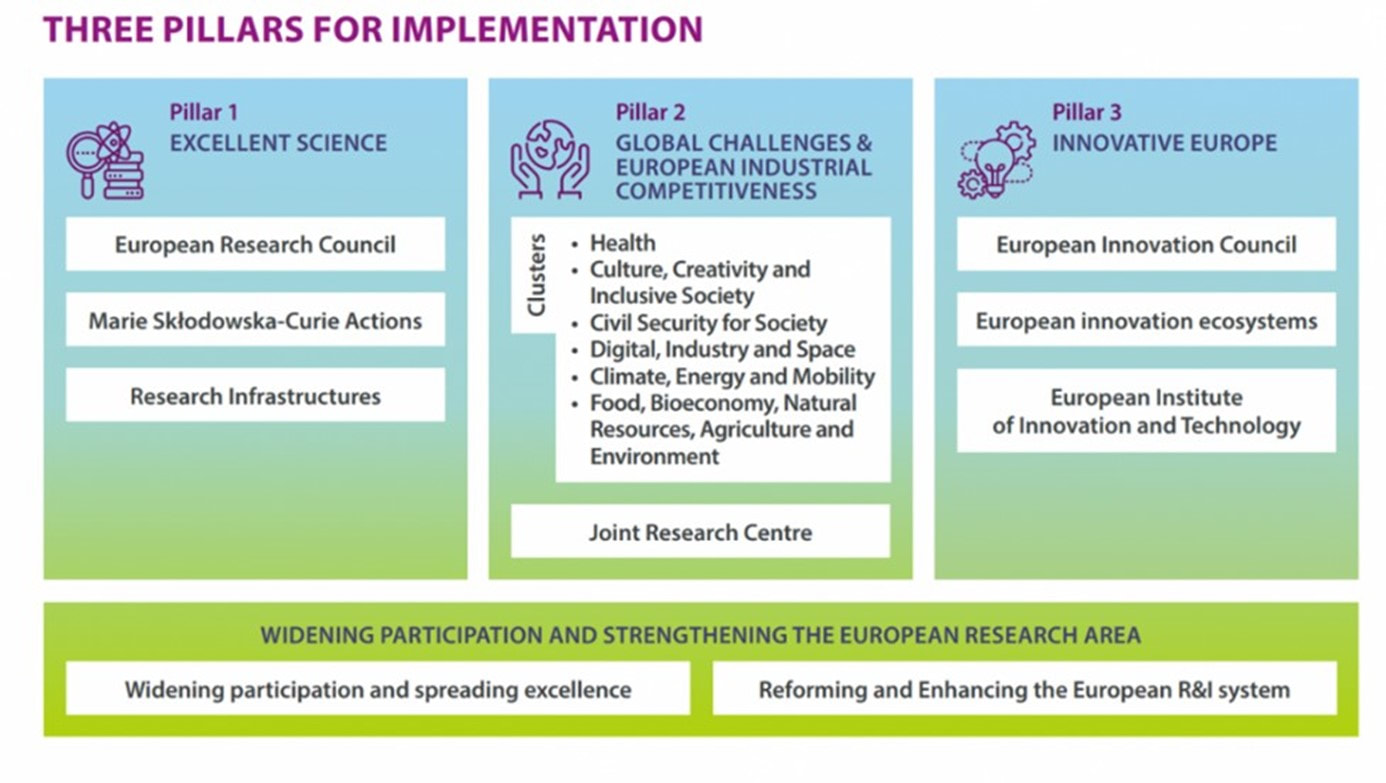




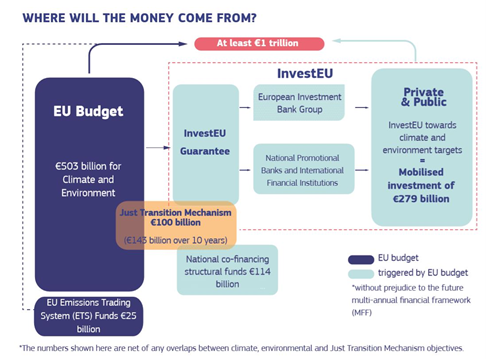
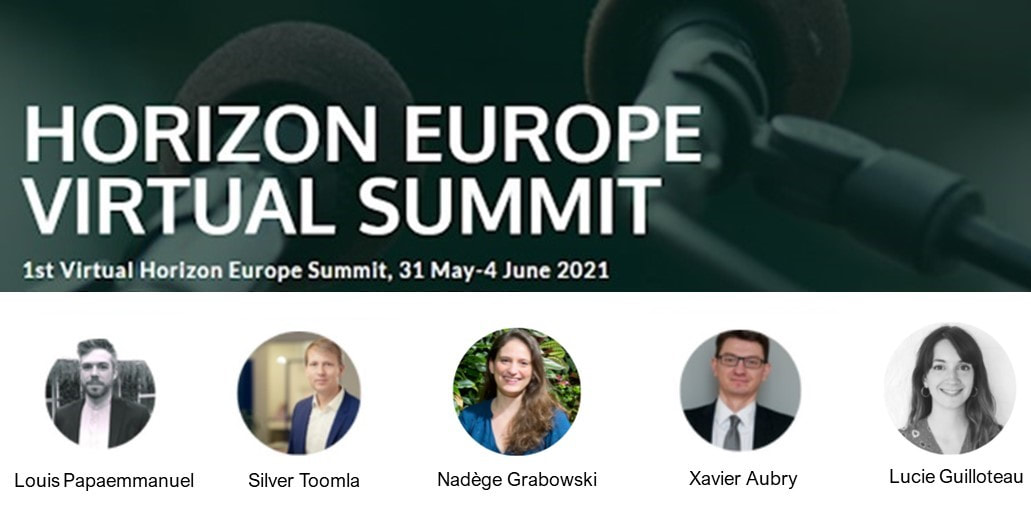
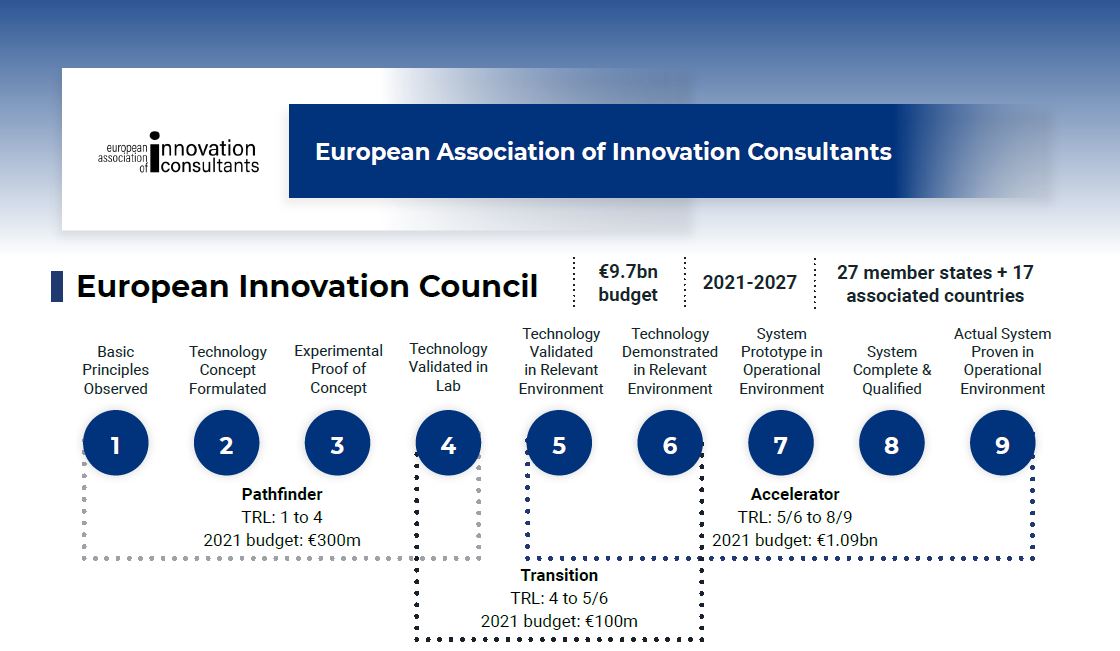
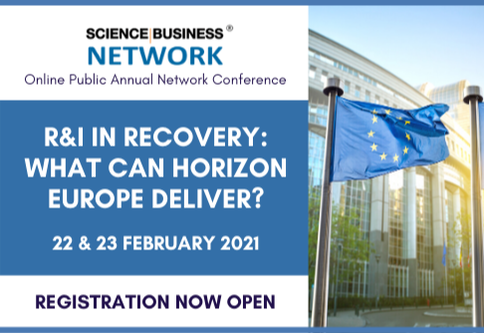
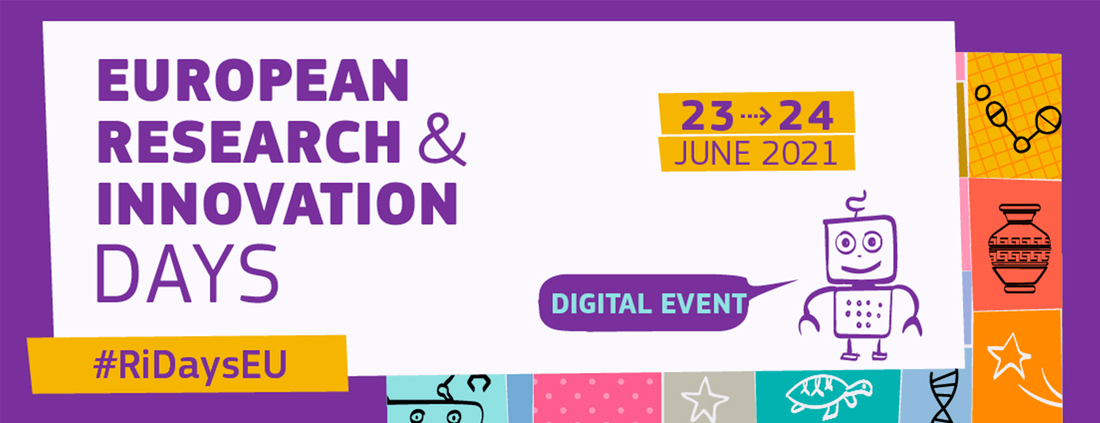


 RSS Feed
RSS Feed
